Drinking of water is very important in our lives, so if you are curious and want to know how water can be important, then relax because, here is the benefits of drinking water.
These are the 10 Benefits of drinking water.
- Increase energy and relieves fatigue: since your brain is wet, it helps you think, focus and concentrate better and be more alert; your energy levels are also boosted.
- Promotes weight loss: Remember by-products of fat, reduces eating intake, reduces higher, raises your metabolism, and has zero calories.
- Flushes out toxins: it gets rid of waste through sweat and urinating. This reduces the risk of kidney stones and UTIs (Urinary Tract Infection).
- Improves skin complexion: moisturizes your skin, keeps it fresh, softly glowing, and smooth. It gets rid of wrinkles. It is the best anti-aging treatment around. “10 Benefits Of Drinking Water”
- Maintaining regularity: Drinking water aids digestion as water is essential to digest your food and prevents constipation.
- Boost the immune system: A water guzzler is less likely to get sick. And who wouldn’t rather feel healthy the majority of the time? Drinking water helps to fight against flu, cancer, and other ailments like heart attacks.
- Natural headache remedy: Helps relieve and prevent headaches commonly caused by dehydration.
- Prevent cramps and sprain: Proper hydration helps keep joints lubricated and muscles more elastic, so joint pain is less likely.
- Puts you in a good mood: When the body is functioning at its best, you will feel great and happy.
- Save money: Water is free if you choose bottled/filtered water; it still cheaper than that high sugar and fat-filled lathe.
Other 20 benefits of water need to know

- Increases physical performance
From a medical perspective, physical performance objectively measures the whole body’s mobility. It includes muscle strength, endurance, power, and endurance, as well as inputs from various other organs and systems, such as bones and balance.
Research has been extensive on the effects of hydration on physical performance in occupational, military, or sports settings. Research has shown that hypohydration and dehydration can cause functional changes in the cardiovascular, metabolic, and central nervous systems, resulting in impairments in physical performance. This can manifest as reduced endurance, fatigue, altered thermoregulation capability, decreased motivation, and greater perceived effort.
According to the American College of Sports Medicine, a decrease in physical performance can be caused by dehydration. A second study by the Department of Physiology of the Australian Institute of Sport showed that a low fluid intake caused a relative performance impairment of 28.6%.
Even a small amount of water loss can impact your physical performance. Drinking water and staying hydrated while engaging in any type of physical activity is vital.
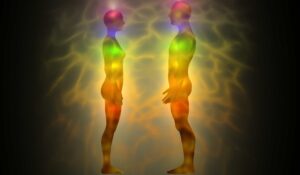
- Increased Energy
Energy is the strength and vitality needed to sustain physical or mental activity.
Energy is obtained from food “fuel molecules,” carbohydrates, lipids, and proteins. Complex biochemical pathways are used to synthesize high-energy compounds such as ATP. This is the main energy carrier for all cells. Water is vital for all biochemical and metabolic pathways producing high-energy compounds. These compounds provide fuel for your cells.
Dehydration is often associated with energy loss, mental fatigue, and physical weakness. According to a study published in The British Journal of Nutrition, fluid loss of 1.6% can lead to decreased working memory, anxiety, and fatigue.
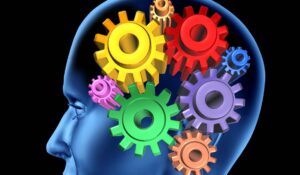
- Increases brain function
Water can improve brain functions like memory and concentration. The brain controls all activities in our bodies. These include motor functions, vision, and essential functions like breathing, heart rate, and hunger.
For optimal brain function, it is essential to hydrate properly. Studying the effects of different conditions on brain function has shown that mild to moderate levels of dehydration can affect cognitive functions such as alertness, concentration, memory, perceptual discrimination, and visuomotor tracking. Psychomotor skills are also affected. Maintaining optimal brain function can be achieved by drinking enough water, especially in hot environments, and while exercising vigorously.
Peking University conducted a study entitled “Effects Of Dehydration And Rehydration.” It followed 12 men who had stopped drinking water for 36 hours. The average results of their mood and cognitive function tests were the same before and after the 36 hours. The researchers concluded that dehydration could seriously affect energy, attention, focus, and short-term memory.
The effects of hydration on cognitive performance and arousal in school-aged and young children have been studied. The University of East London’s School of Psychology studied school-aged children and found that hydration increased visual attention. A University of Bristol study of young adults found that water intake was associated with higher self-reported alertness and arousal.

- Treats Constipation
Water is a treatment for constipation caused by insufficient fluid intake. This is especially true if one has a fever or diarrhea, which can lead to dehydration. Constipation is a condition that causes difficulty or infrequent bowel movements or hard stool.
There are many causes of constipation. Reduced physical activity and insufficient intake of fibers, carbs, and fluids are two key factors that can cause constipation. These factors can lead to constipation. You can prevent it by exercising regularly and increasing your water intake. According to the World Gastroenterology Organization, constipation can be treated by increasing water intake.
Diarrhea and fever can cause constipation. Secondary constipation is more common in the elderly and young.
A study published in The European Journal of Nutrition found that certain mineral waters high in sodium and magnesium can improve constipation frequency and consistency, particularly in infants. The Fine Water Society has identified the following mineral water brands that contain high amounts of sodium or magnesium.
| Mineral Water Brand | Magnesium Content | Sodium Content (mg/l) |
| ROI (Slovenia) | 1100 | 1100 |
| Vichy Catalan (Spain). | 6 | 1097 |
| Gerolsteiner (Germany) | 108 | 119 |
| Pedras (Portugal) | 24 | 577 |
| ORO Luxury Water (North Macedonia). | 310 | 40 |
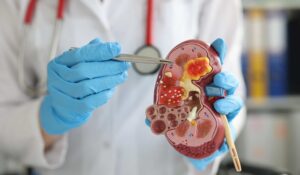
- Kidney stones can be helped.
Urinary stones can be a collection of mineral crystals (calcium uric acid struvite, cystine) found in the urinary tract. They can cause severe discomfort. The most common type of kidney stones is kidney stones.
Kidney stones form when blood wastes crystallize in the kidneys and build up inside the kidneys. This can eventually lead to a hard, stone-like mass. Uric acid kidney stones can also be caused by dehydration. For those predisposed to uric acid stone formation, consuming more fluid is a good idea.
Fluid intake is a major factor in the urine volume passing through the kidneys. This dilutes the concentration of minerals, making them less susceptible to crystallization or formation of stones. According to the American Urological Association (AUA), kidney stone sufferers should consume enough fluid to produce 2.5 liters (85oz) of daily urine. This equates to approximately 3 liters (100oz) of fluids consumed daily.

- Supports for weight loss
Water can help you lose weight by making you feel fuller, increasing your metabolism, and substituting sugary drinks. A reduction in body weight due to voluntary or involuntary causes is called weight loss.
Increased water intake may lead to weight loss by increasing metabolism. This can help increase calories burned each day.
Drinking water 30 minutes before meals can help you lose weight. This is likely due to the increased feeling of fullness and satisfaction. One study found that dieters who consumed 16.9 ounces (0.55 liters) of water before meals lost 44% less weight than those who did not drink water before meals.
Water is an effective way to lose weight. It’s a healthier option than high-calorie drinks that can significantly increase obesity. The systematic review of all randomized clinical studies published by Nutrition Hospitalaria in 2019, entitled “Effects of water consumption on obesity: A systematic review,” showed that weight loss ranged between -0.4kg and -8.8kg, with a mean weight loss of 5.15% over 12 weeks. These studies examined the effects of replacing high-calorie drinks with water, increasing water intake, and drinking water before meals.

- Avoid Hangovers
Hangovers can be unpleasant side effects of alcohol intake. They include headaches, fatigue, thirst, nausea, and dizziness.
Alcohol-induced dehydration is the main cause of hangover symptoms. Because alcohol has a strong diuretic action, it can increase urine production. This causes a loss of fluids and electrolytes necessary for normal functioning.
Drinking water is a good way to avoid a hangover. The National Health Service (NHS), United Kingdom, recommends drinking water between each alcoholic beverage and at least 2 cups (16oz) before bed.
A significant loss in body water or electrolytes, at a rate greater than the body can restore, is called dehydration. Dehydration can manifest in various ways, including thirst, lethargy and altered sensorium, reduced cognition, dry mouth, decreased urine output, hypotension, tachycardia, and shock.
Increased fluid loss (vomiting, diarrhea, sweating, burns) or decreased fluid intake (pharyngitis and other debilitating diseases) can cause dehydration. Drinking enough water daily can prevent dehydration, as long as one is aware of their thirst.
The US National Academies of Sciences, Engineering, and Medicine provides a guideline volumetrically for how much fluid to drink each day to prevent dehydration. For men, 3.7 liters (just under a gallon, or 16 cups) of fluids per day, while women should consume 2.7 liters (0.75 gallons, or 11 cups), which can be adjusted according to factors such as temperature, activity level, age, and geographical location. If a person is doing strenuous exercise on a hot summer day to avoid dehydration, they should increase their water intake.
- Carries oxygen to cells
The oxygen absorbed from the air surrounding the lungs is bound to the red blood cells, which are then “dissolved” in plasma. Plasma allows for blood circulation. Plasma is 90% water. Therefore, plasma acts as a carrier medium for blood circulation. This is vital for delivering and absorbing oxygen and nutrients to all cell types.
Plasma accounts for 55% of total body blood volume. The complex system of the renal and neuroendocrine systems is responsible for maintaining plasma volume. Normal circumstances call for only a minimum of water intake to maintain plasma volume. This is enough to transport oxygen and nutrients and remove any waste products.
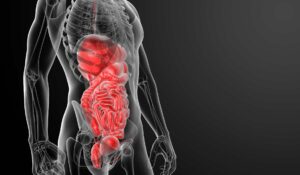
- Improves Digestion
Digestion is the process by which insoluble macronutrients like fats, carbohydrates, or proteins are mechanically and enzymatically broken down into micronutrients. These micronutrients can cross the intestinal epithelium, enter the bloodstream, and then be used in the body.
The digestive process begins with chewing and ends in the small intestine. Food moves through the digestive tract and mixes with digestive fluids (bile acids, stomach acid, saliva, stomach juice, bile acid). This causes large food molecules to be broken down into smaller molecules that can then be absorbed.
Water is essential for digestive function. Water is essential for proper digestion. It helps lubricate the mucous membranes of the gastrointestinal tract, aids digestion, encourages gastric emptying, promotes intestinal mobility, and controls bowel movements.
Hypohydration and dehydration can lead to poor digestion and may be associated with constipation, delayed digestion, gastric acid reflux, and bloating. Researchers from the University Hospital Maastricht’s Department of Gastroenterology found that dehydration can lead to delayed gastric emptying. Healthy digestion can be achieved by adhering to the daily recommended liquid intake of 2.7 liters (for women) and 3.7 Liters for men (adjusted to individual circumstances).

- Regulates body temperature
The body’s temperature indicates the body’s ability to regulate internal heat. Because of its high heat capacity, water is vital for maintaining body temperature.
This happens when body temperatures rise due to fever or when the ambient temperature exceeds body temperature. In these situations, sweating is stimulated, and sweat evaporates. This allows the body to lose excess heat. A state of adequate hydration is crucial to the body’s temperature-regulating process, especially during vigorous physical activity, high ambient temperatures, or fever.
If the water volume lost is not replenished, excessive sweating can cause hypohydration or dehydration. According to Nutrition Reviews’ article “Water and hydration and health,” excessive sweating can cause a reduced plasma volume and increase plasma osmolality. This could lead to decreased sweat output and a decrease in core temperature. This can lead to heat exhaustion or heatstroke. It is vital to drink water to avoid such conditions.
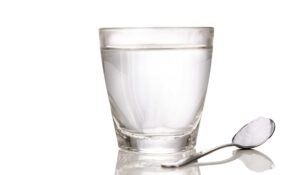
- Provides Electrolytes
The essential components of basic life function are electrolytes, ionized constituents, or ionizable substances in living cells, blood, or other organic matter. The most commonly found electrolytes in the human body are sodium, potassium, and chloride, as well as magnesium, calcium, phosphate, and bicarbonates.
Minerals and electrolytes can be found in water, but their amounts vary widely between different water sources. They can be found in natural water supplies and underground mineral waters with stable concentrations. Or they can be added to water. Drinking water is a good source of electrolytes.

- Protects Organ Tissue
An organ is a collection of tissues from different types of cells. They work together to fulfill the overall function of the organ.
The intracellular fluid compartment makes up approximately 66% of the total body water in the human body. 90% of intracellular fluid is found within cells of high-water density organs like the brain, liver, kidney, muscles, and skin. 10% of intracellular fluid is found inside red blood cells.
These cells contain water that helps to maintain their shape. It also acts as a shock absorber, protecting them from injury when they are under stress. Water’s shock-absorbing qualities are particularly important for the musculoskeletal (joints) when running or walking and for the brain, which is protected by a fluid layer. Water intake is essential to ensure that the body has enough water.
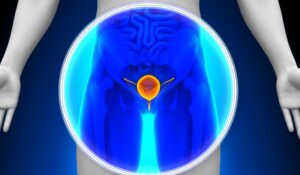
- Flushes Bacteria From Bladder
UTIs (urinary tract infections) can be caused by bacteria in the bladder. These infections are cystitis, other bladder infections, and related structures (e.g., urethra, prostate). UTIs can cause painful urination and frequent urination. They can also be characterized by urgency, hesitancy, or blood in the urine. UTIs are a common infection, particularly among women. Between 40% and 60% of UTIs occur at some point in their lives.
Many factors can cause UTIs. These risk factors include conditions that prevent the bladder from emptying and/or stagnate the urine flow. Urine is a perfect medium for bacteria growth.
UTIs can be reduced by drinking more fluids. This is especially true for active UTIs. The Canadian Journal of Infectious Diseases and Medical Microbiology published a study that found frequent urination and high urine volumes can reduce the risk of UTIs. This is because possible pathogens are flushed out of the urinary tracts.
This chart illustrates how higher water intake reduces urinary tract infections.
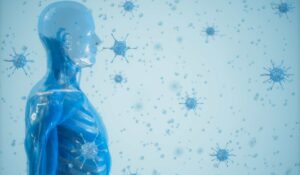
- Improves Immune System
The immune system comprises many cells, tissues, molecules, and other components that fight and resist infections.
The circulatory system is essential for transporting and delivering nutrients, infection-fighting white cells, and the lymphatic system to eliminate toxins and other pathogens. Both the lymphatic and circulatory systems are dependent on water for hydration. Our immune system will function properly if we drink the recommended daily water intake.
The Hirosaki University Graduate School of Medicine discovered that dehydration could lead to immunosuppression via decreased neutrophil function. This is a common type of white blood cell involved with antigen recognition, foreign pathogen engulfment, and the production of bactericidal chemicals.

- Depression Treatment
According to the American Psychiatric Association’s Diagnostic Statistical Manual of Mental Disorders (APA), depression is a mood disorder that can cause persistent sadness and loss of interest.
Drinking water is thought to be good for your mental health. It promotes brain function by providing nutrition and signaling pathways to the brain, removing toxins from the body, and providing energy for the brain.
According to a study by the School of Nutrition and Food Science of the Isfahan University of Medical Sciences, drinking water may lower the risk of developing depression and other psychological disorders. A daily intake of fewer than two glasses of water per day was found to cause 73% and 54%, respectively, increases in depression risk in men and women. The effects of water on depression risk are multifactorial, and the results are not well-established.

- Helps prevent and treat headaches
A headache can be defined as pain or discomfort in the head caused by irritation or inflammation of extracranial or intracranial structures with pain receptors.
Hypohydration and dehydration have been associated with headaches for a long time. They are clinically classified under “Headache attributable to another disorder of hemostasis.” The link between these two conditions and their pathophysiologic mechanism is unclear. One mechanism, the Monro-Kelli doctrine, suggests that a bodily water deficiency can lead to dural vein stretching and cause headaches.
One study looked at the relationship between water intake and migraines in females. It found that women who consumed more water (approximately two liters per day) suffered a lower severity, length, frequency, and severity of migraine attacks and reduced attack-associated disability compared to women who drank less.
Headaches can be caused by water deprivation, whether it is due to religious, cultural, or personal fasting. The National Hospital for Neurology & Neurosurgery in the United Kingdom found that these headaches are often caused by water deprivation and usually resolve within minutes after consuming fluids.
Drinking water can help with “water deprivation headaches.” Water can be beneficial in migraine prevention. The University of Maastricht conducted a randomized trial to determine the benefits of regular water intake for patients suffering from recurring headaches. It found that adequate fluid intake (greater than 2 liters per day) may benefit long-term migraine management.

- Productivity increases
Productivity is the ratio between outputs and inputs. It is the ratio of an individual’s production inputs, such as knowledge or labor, to produce a certain output level.
OHS researchers often measure cognitive and physical products in various occupational settings. Few studies have examined the impact of dehydration on productivity in high-heat occupational settings. Robert W. Kenefick published a study in the Journal of the American College of Nutrition that found dehydration can negatively impact worker productivity, safety, and morale.
North American legislative bodies, such as the Occupational Safety and Health Administration and the American Conference of Governmental Industrial Hygienists (ACGIH), recommend that fluids be replaced frequently when exposed to heat stress. For example, one cup (250 ml) should be replaced every 20 minutes if you work in warm environments.
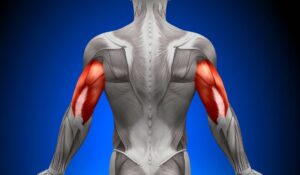
- Increases muscle growth
Muscle growth is when muscle fibers increase in size or hypertrophy. Although the relationship between water intake, muscle growth, and hypertrophy isn’t well understood, at least one study has suggested that there may be a connection.
A study by the Carlos III Health Institute in Spain, which examined the role of water homeostasis on muscle function and frailty, found that muscle cell loss can negatively affect myocyte function and intracellular protein structure. The researchers suggest that the water volume in muscle cells could act as a metabolic signal. Cell shrinkage caused by dehydration acts as a catabolic signal, and cell swelling from hyperhydration acts as an anabolic signal. It is suggested that muscle growth may be triggered by staying hydrated.
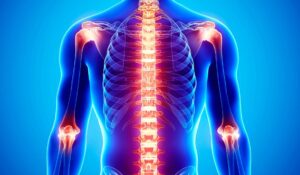
- Protect your joints
A joint is a structure within the human body that holds two skeleton pieces together. There are three types of joints, depending on what type of tissue they contain: synovial, cartilaginous, and fibrous.
The main functional joints in the body are the synovial joints. They include the hip, knee, elbow, and hip. These joints have a cavity composed of fibrous connective tissues and synovial fluid. This fluid acts as lubrication to reduce friction in the movement. It is essential to properly hydrate joints to make synovial fluid.
The cartilage in the joints and intervertebral disks of the spine is around 80 percent water. Long-term dehydration may cause the cartilage to lose its shock-absorbing capacity, leading to joint pain and damage.
How much water should you drink per day?
According to the US National Academies of Sciences, Engineering, and Medicine, you should consume 3.7 liters of water per day (a little less than a gallon, or 16 cups) for men and 2.7 Liters (0.7 gallons, or 11 cups) for women. However, asks, ” How much water should I drink per day? The answer to this question can depend on many factors, including temperature, activity level, age, and geographical location. Depending on external factors, your body may require more water than the recommended amount.
Jennifer Stone, a physical therapist, and a clinical supervisor, suggest two basic formulas to determine how much water you should drink each day.
What are the benefits of drinking water in the morning?
Below are some of the benefits of drinking water every morning.
- Weight loss is made easier by drinking water in the morning.
- Morning water intake can improve cognition, memory, attention, mood, and concentration.
- Drinking water in the morning can increase skin density.
- It is important to drink water every morning to prevent the formation of kidney stones.
Doctors often recommend drinking two to three 250ml glasses of water each morning for improved health.
Do you need to drink water before going to sleep?
Before you go to bed, drinking some water is a good idea. It depends on how well you are hydrated and your sleep habits.
Drinking water before bed helps to prevent heat exhaustion and can help you sleep better. It can also reduce hangover symptoms.
Drinking water before bed can increase nighttime awakenings and the likelihood of urinating. Frequent nighttime awakenings can disrupt a person’s sleep cycle, leading to decreased productivity, injuries, and even depression.
Do You Need to Drink Water Before Dinner?
Drink water before you eat if you want to reduce calories and feel fuller before eating. Studies have shown that water intake before and during meals can increase hunger and change subjective satisfaction. This could be linked to weight loss. Virginia Tech’s Department of Human Nutrition, Foods, and Exercise found that water intake increased weight loss, but only when combined with a low-calorie diet.
Do You Need to Drink Water During Dinner?
Water should be consumed at dinner to replace sugary beverages. According to the Dietary Guidelines For Americans (US Department of Health and Human Services) and the US Department of Agriculture, drinking water during dinner is good for your health.
What are the benefits of drinking a gallon of water every day?
The benefits of drinking a gallon per day include better physical performance, energy, and digestion.
One gallon of water equals 3.785 Liters. This is approximately equivalent to the 3.7 Liters of liquids men should consume per day and slightly more than the 2.7 Liters (0.7 Gallons) of water recommended for women each day. Your water needs will vary depending on location, age, activity level, and temperature.
What is the difference between luxury drinking water and regular water?
Luxury drinking water is different from regular drinking water. It depends on the brand. This can include exotic sources, high-quality packaging (almost always glass), unique mineral components, and origin stories. Here’s a list of luxury bottles of water and their unique characteristics.
| Luxury Water Brand | Country of Origin | Unique Factors |
| Aur’a Natural Goldwater | Romania | Naturally enriched with silver and colloidal gold |
| Svalbardi Polar Iceberg Water | Svalbard, Norway | The world’s most northern bottled water source, rare iceberg source, carbon-negative, award-winning packaging |
| Nevas Water | Germany | Champagne replacement in a suitable bottle, unique cuvee from two spring water sources |
| Fillico Jewelry Water | Japan | Crystal-encrusted bottles with extraordinary design |
| APSU Origin Water | Chile | Rare source of glacial meltwater from the Patagonian wilderness |
How to Avoid Dehydration
A significant loss in body water or electrolytes, at a rate greater than the body can restore, is called dehydration. Dehydration can manifest in various ways, including thirst, lethargy and altered sensorium, reduced cognition, dry mouth, decreased urine output, hypotension, tachycardia, shock, and tachycardia.
You can avoid dehydration by following the recommended daily water intake and adapting them to your circumstances. You can ensure you get enough water to avoid dehydration by drinking a glass of water every morning and carrying a water bottle with you if you’re away from home for a long time.
What are the symptoms of drinking too much water?
The most obvious signs of drinking too much water include nausea, confusion, and drowsiness. These symptoms can be quickly treated by quitting drinking water. Seizures, organ failure, or even death may occur in rare cases of severe water poisoning. A healthy daily water intake does not leave you thirsty or excessively urinating.
What happens to your body when you start drinking more water?
You will feel fuller and might even lose weight. You will likely feel more comfortable with your digestion (less heartburn). You might notice greater ease and regularity in your bowel movements. Your gums and teeth will be healthier and more resilient.
What happen if you drink water everyday?
Water is essential for your health. Water is important for your health. It can prevent dehydration. This condition can lead to unclear thinking, mood changes, overheating, constipation, and kidney stones.
How long does it take to see benefits of drinking water?
Water deprivation can also decrease blood volume, which can cause your heart rate to rise and lower blood pressure. It takes only 15 minutes to get enough water to balance things out.
Benefits of drinking water for skin
- Sagging Skin. Sagging skin can be caused by rapid weight loss or extreme fat loss.
- pH Balance. Maintaining a healthy pH balance is crucial for your skin.
- Flush Toxins
- Reduces wrinkles
- Prevents Acne and Pimples
- Moisturize.
- Elasticity.
Benefits of drinking water for weight loss
- Your appetite may be suppressed by water.
- Water may increase metabolism.
- Drinking water can help you reduce your total liquid calorie intake.
- During exercise, water is important.
- Water is essential for the body to eliminate waste.
Disadvantages of drinking water
Too much water consumption can cause fluid overload and body imbalance. An excess water intake can cause a lower sodium level in the body. This may lead to fatigue, nausea, vomiting, cramps, and fatigue. Hyponatremia is a condition that causes excess water to build up in the body.
How much water should i drink a day?
The U.S. National Academies of Sciences, Engineering, and Medicine determined that a daily fluid intake of about 15.5 cups (3.7 Liters) of fluids is adequate for men. Women consume approximately 11.5 cups (2.7 Liters) of fluids per day.
You may also read; The Herbal Paradise Explore Seven Miraculous Herbs That Have Proven Health Benefits
“10 Benefits Of Drinking Water”

Correct
ok thanks